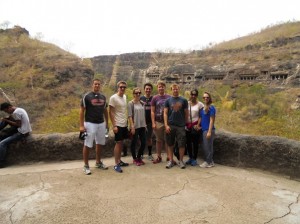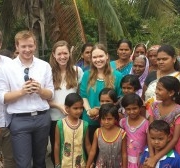Reserve Bank of India Reflections: Week 5
As we reflect on five weeks spent in India, a number of emotions are evoked. Many of these emotions we have touched upon in the previous installments, and I fear it would not do to dwell on these. It is, however, coming towards the time when some among us look to the west, and the impending journey back to our respective homelands to be with our kin. Alas, such thoughts should be pushed to the back of one’s mind, a flicker in the darkness, for we have time enough. Time enough to laugh, time enough to love.
 “I can see the Shire. The Brandywine River. Bag End. Gandalf’s fireworks, the lights, the party tree’’. (Tolkien, 1955)
“I can see the Shire. The Brandywine River. Bag End. Gandalf’s fireworks, the lights, the party tree’’. (Tolkien, 1955)
The euphoria of finishing work on Friday was directed, in typical fashion, towards Koregaon park for a night of turpitude. There was however one notable absence, that being your humble narrator, who the gods had seen fit to incapacitate with a fever. Nevertheless, the gallant survivors soldiered on. Uniting with friends both old and new, a great night was had by all, but for one exception. As it turned out, the night proved very much to be a tale of two cities, for a second among us found the euphoria he was searching for ‘it was the best of times, it was the worst of times’. The following morning started early for those in a fit state to travel. A short number of miles away lay the Symbiosis Institute, a glorious campus set back in the hills, unsullied by the spread of urbanisation. After a number of fascinating conferences and a sumptuous feast, the day was done, and the weary travellers returned home.
The next day, awaken by a burning desire for adventure and a relatively clean bill of health amongst the group, we departed for Lonavala, a hill station nestled between Pune and Mumbai. Having purchased a return train ticket for Rs 30 (or 30 pence to you and me), we seated ourselves in the cramped compartment and trundled down the tracks, the light patter of rain accompanying us for the duration. Upon our arrival, we were met with a daunting 12km to reach the famous Lohgarh Fort, situated precariously on the precipice of a sheer face. En route we passed a number of caves and waterfalls, each presenting an opportunity to breathe in our immense surroundings. After weaving our way up the changing path, we finally reached the bottom of an exposed set of stairs, made treacherous by the deluge that was now falling from the heavens. By the time we reached the higher sections, the stability of the rock beneath us had given way to a torrent of water, threatening at any point to sweep us to swift demise on the jagged rocks below. We pressed on, however, our spirits buoyed by the raucous chanting of our Indian counterparts ‘Jai Bhavani, Jai Shivaji’ they sang, as far as we could understand, paying homage to the once King of Maharashta who had occupied the fort. Upon reaching the summit, we stood victorious. I fear the expression soaked to our skins would not sufficiently describe our condition. For many of us, the suspicion was that we had in fact absorbed water, the monsoon actually permeating into our very souls.
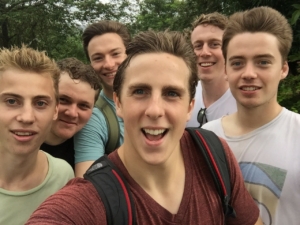 Needless to say, the prospect of the return journey to the station did not fill us with any particular relish, and as such we found a willing driver, who (this being India) allowed us to ride standing up in the back of his pick-up truck down the undulating mountain roads. This proved a source of much hilarity for those who were still making the climb, many finding themselves unable to contain their glee. The chanting continued for the entirety of our journey ‘Jai Bhavani, Jai Shivaji, Jai Bhavani, Jai Shivaji’ following us down the mountainside.
Needless to say, the prospect of the return journey to the station did not fill us with any particular relish, and as such we found a willing driver, who (this being India) allowed us to ride standing up in the back of his pick-up truck down the undulating mountain roads. This proved a source of much hilarity for those who were still making the climb, many finding themselves unable to contain their glee. The chanting continued for the entirety of our journey ‘Jai Bhavani, Jai Shivaji, Jai Bhavani, Jai Shivaji’ following us down the mountainside.
That evening, having returned home, we found ourselves deserving of a hearty meal and decided to venture to the Hard Rock Cafe. Hoping against hope that this would be the night that we would find the dark meat that our stomachs so craved. Our prayers were answered, and each bite of the tender, juicy, succulent burger was all we could have dreamed of. The work week continued as it is inclined to do so, broken up only by a trip to Mumbai to see various offices of the Reserve Bank. We were able to ‘interact’ with several important members of the banking world and learned a lot about the stability of the economy and the process of the destruction of money.
Epilogue: On our inability to encapsulate our surroundings and the ferocity of the monsoon.
For we are but simple men with simple words, and for such things we must look to those who possess the necessary verbal proficiency, lest we pass up the chance to embody our experience through the written word. On this occasion, it is through paraphrasing Coleridge that one might best project our intentions, ‘Where oft the sacred river ran, through caverns measureless to man’. For here the artistry of the words flows as do the rains down the luscious green valleys. And one need look no further for an estimation of scale, for ‘measureless’ embodies all that is India. The majesty of the landscape that greeted us at the summit was matched only by its vastness.
For ‘measureless’ was the queue of well wishers, waiting for an introduction. As were the miles covered by foot and by wheel. ‘Measureless’ was the deluge that did cover our brow, that weighted our garments, and did steel our determination. Is not the power of the monsoon measureless? Does is not giveth and taketh away? A force beyond measure, its fingers reaching across the horizon; arteries breathing life into a barren land.
But in our reverence, prey that we forget not its apathy to the plight of man, for one can hope alone to avoid its wrath. Its appetite for destruction stretches indefinitely, its roots of malice stretch deep. But measureless are the bonds that join us. Sacred and immortalised ‘we few, we happy few, we band of brothers’. (Shakespeare, 1599)
GEO RBI interns
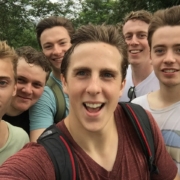
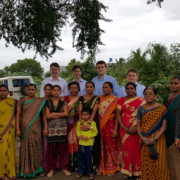


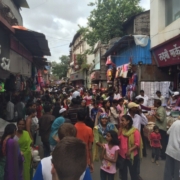
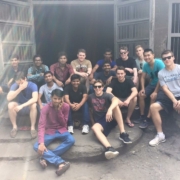

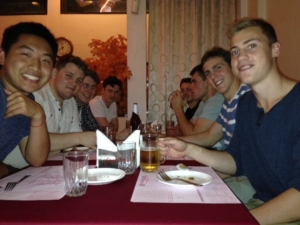
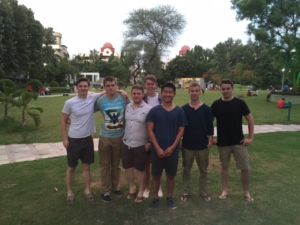
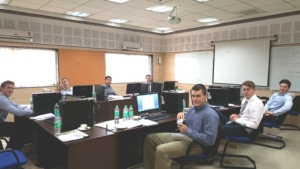
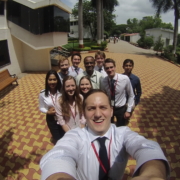
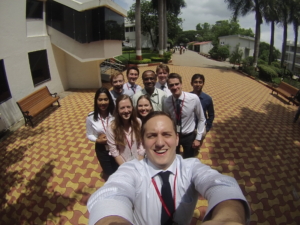
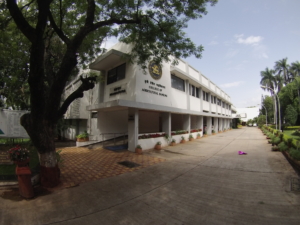
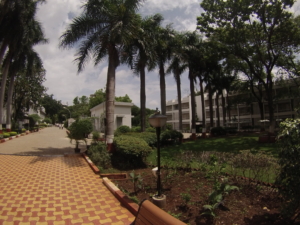 to a fantastic lunch at the Symbiosis guest house on top of a mountain
to a fantastic lunch at the Symbiosis guest house on top of a mountain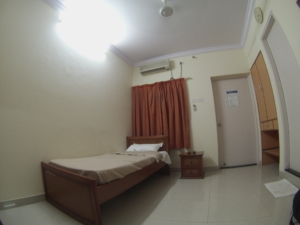 central offices in Mumbai.
central offices in Mumbai.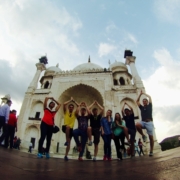
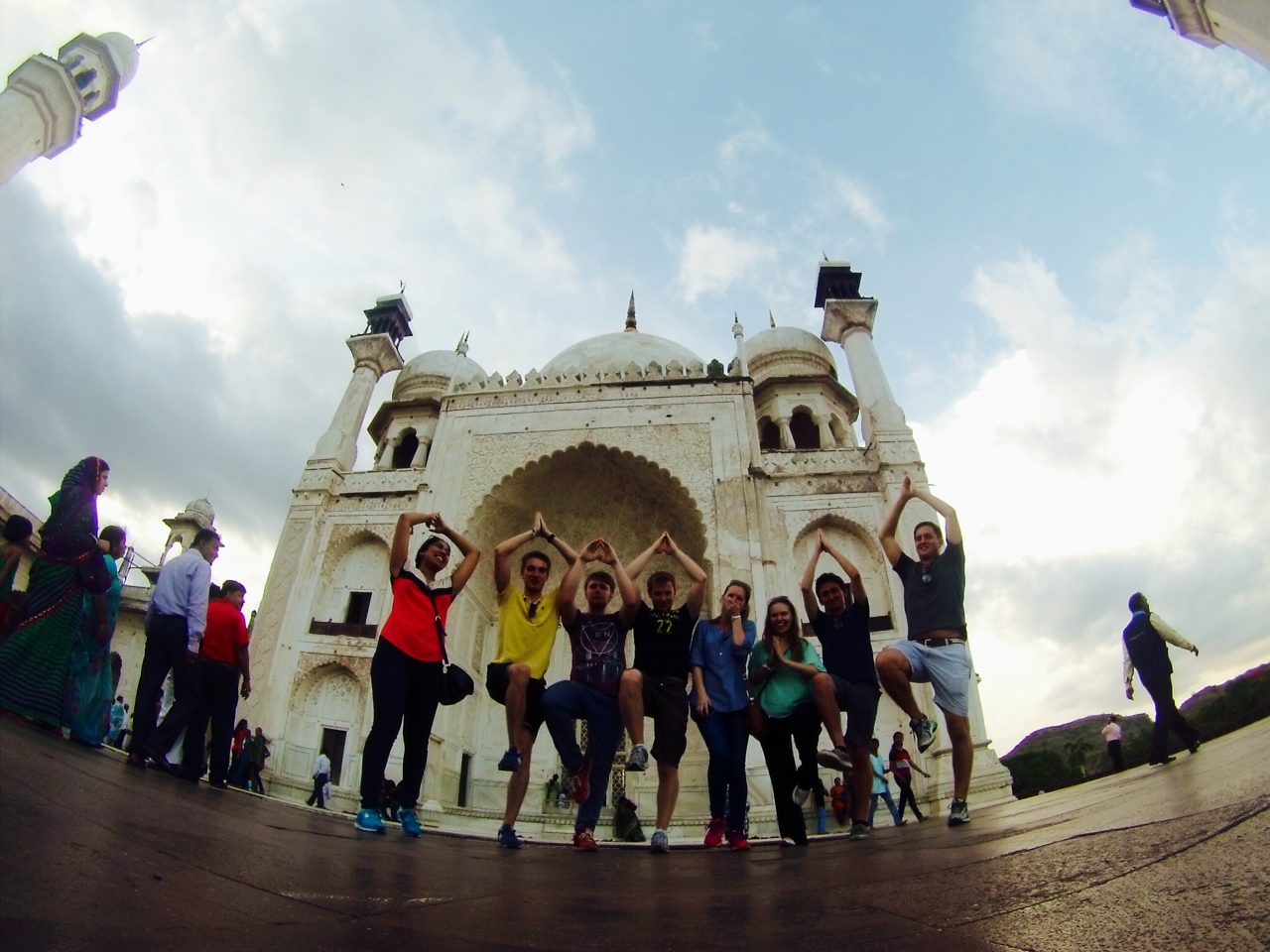 A sweet, subtle petrichor suffused the Pune air, heralding the arrival of the much awaited monsoon. The monsoon has one of the most transformative effects on a landscape in the world, changing it from barren fields into a lush green carpet. Moreover, its arrival is eagerly anticipated across all social strata. In many respects the Indian economy relies wholeheartedly on weather that we very much take for granted back home. Though the monsoon has not yet built up to its notorious tumult, we have seen glimpses of its infamous power.
A sweet, subtle petrichor suffused the Pune air, heralding the arrival of the much awaited monsoon. The monsoon has one of the most transformative effects on a landscape in the world, changing it from barren fields into a lush green carpet. Moreover, its arrival is eagerly anticipated across all social strata. In many respects the Indian economy relies wholeheartedly on weather that we very much take for granted back home. Though the monsoon has not yet built up to its notorious tumult, we have seen glimpses of its infamous power.